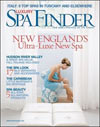Updating the Reiki dictionary
By Beth Lowell, Managing Editor
Does the Reiki dictionary need an update?
Each year the dictionary gets an overhaul to be current with the times – I think the Reiki language dictionary could use an overhaul, too. If I were updating the Reiki language dictionary, I’d eliminate/update these major offenders – absolutes, propaganda, esoterica, and just plain confusing terms.
Absolutes:
The problem with absolutes is they usually don’t exist in life. How can they, when things are in a constant state of flux? “Always” and “Never” exclude the possibility of nuance and render the shades of grey that exist between black and white invisible. How many times have you made a decision based on your absolute belief in its rightness, only to find that later, you’ve come to a different conclusion and then waffled again because things had changed and you just weren’t sure anymore?
Reiki always works. Really? Even when someone doesn’t want it? In the case of a well meaning practitioner who struggles to hold a pet still while “offering” Reiki, did the Reiki work? I don’t think it can work when someone is not willing to receive it.
Animals love Reiki. You know the old saying, “You can please some of the people all of the time, and all of the people some of the time, but you can’t please all of the people all of the time.” Not all animals love Reiki all of the time. Some don’t seem to like it ever. This Reiki myth falls into two categories: absolutes and propaganda. Woohoo!
Propaganda:
Propaganda sounds evil. But it’s simply the telling of partial truths or slanting information to convince someone that your point of view is right. Some say another word for propaganda could be “marketing.”
Animals don’t judge Reiki, but merely bask in its light. Propaganda? (Yes, again, the telling of partial truths in order to sell your point.) Animals do not judge Reiki and do bask in its light – when they choose to or if they like it. They may not judge Reiki, but they often do judge human beings, and they may not care for the Reiki practitioner who’s offering it that day.
The implication of this statement is that because animals who like Reiki treatments don’t judge it, Reiki must be “true.” How do you explain it, though, when someone’s animal you’ve come to treat refuses a Reiki treatment, loudly and clearly through body language and/or vocalizations, (or for some mysterious reason takes a dislike to you) when you show up to treat them? Now you’ve got some back pedaling to do.
Jargon (or just plain confusing terms):
Reiki goes wherever it’s needed (usually spoken in a dreamy tone with a knowing half smile). Reiki practitioners understand what this statement means, but to someone unfamiliar with the concept of Reiki, it can sound confusing, rather fantastic (in the fantasy sense of the word,) or just plain nuts.
To use an example from religion, try this. Someone presents this statement as fact to a group of people: “Ask and you shall receive.”
A sampling of responses might be—
1. I believe this! It happens to me all the time!
2. I’d really like to believe this, but I don’t think it can happen for me.
3. Really?
4. That’s bunk.
5. This is so out of my range of reality that I think I’d really like to get out of here as fast as possible. What excuse can I make without appearing totally rude?
Okay, so Reiki goes where it’s needed. I think Reiki is better served by a different interpretation of this fact so it’s meaningful to those who hear it. People are not all the same so no “one size fits all” sound byte is appropriate.
Channel, Channeling I find this concept troublesome. I understand that as practitioners we are a channel or conduit for Reiki. But too easily we can fall into talking about “channeling”. Being a channel is passive. Channeling is active. As Reiki practitioners, we are present in the moment, but not actively directing anything. To me, the word “channeling” implies action, and also connotes a more esoteric aspect, for example, one common in mediumship. A Reiki Master may be a medium, but mediumship is distinctly its own thing – separate from and not to be confused with Reiki.
Esoterica
I don’t know what your experience with Reiki is, but I’ll tell you mine. I’m a relative newcomer. My interest was in learning a method to help animals resolve issues that were not directly addressed through veterinary or training protocols. Of course, I quickly learned that it was impossible to effectively help others without first helping myself.
I’m not devoid of spirituality by any means, but I have to confess when it comes to chakras, I never know quite where mine all are. Similarly, I’m lost when practitioners assume that I’m well versed in any topic of esoteric study in which they are involved. Recently a friend confided that although she had taken a Reiki class and enjoyed it, she didn’t like how some Reiki practitioners spoke because it made her feel excluded. She had no idea what they were talking about. Neither do I.
I’ve heard a lot about angels recently. From what I gather, there’s a whole practice (or perhaps a few) that revolve around them. I kind of like the idea of an angel sitting on my shoulder or being my guardian. But I don’t see the connection with Reiki. If “Reiki goes where it’s needed,” I’m not sure why I need an angel looking out for me. Don’t get me wrong, I don’t dislike angels or anyone who relies on them. But I’d like them out of the Reiki dictionary because angels belong to religion, and Reiki is not a religion. Angels have a home and that’s in the bible. They may live in your heart as well, but they don’t live in Reiki.
Okay, so since I’m coming out of the closet here, I might as well admit the whole truth. Um, I don’t have a clue as to who the ascended masters are. I’m going out on a limb here. If they’re ascended, I guess they are in heaven. That means they’re dead. If they are masters, perhaps they are people like Galileo, Leonardo Da Vinci, Michelangelo, Abraham Lincoln (or just plain old Biblical Abraham who I think has found a modern day channeler from what I read on Facebook) and any other person that history regards as an example for humanity. I love history. I love the masters. Their legacy endures. But they have a home too, which is in history books, or on PBS, not in the Reiki dictionary.
I’m on the fence about cutting the cords when it comes to auras. I want to make it perfectly clear, if I haven’t done so already, that it’s not that I don’t believe in any of these things or judge those who do stuff with them, but when I hear casual mention of fending off some kind of negative assault on the etheric aura in connection with Reiki, as if the concept is as commonly known as the one about the earth being round, I get confused. Are we talking about a natural healing method or magical self defense? I think I’m a decent Reiki practitioner – even though I don’t seem to know anything much about what people are talking about when they refer to “Reiki.”
That’s why I think the Reiki dictionary should be updated.
Editor’s note: The writer fully admits to having been guilty of using the mentioned examples of Absolutes, Jargon, Propaganda and Confusing Terms in the past herself, mostly, because, well – that’s how she first learned Reiki. She has since started thinking for herself, a wise idea in any pursuit. Being esoterically challenged, she stays away from talking about things of which she has limited or no knowledge.
It is her sole and well meaning intention that Reiki practitioners might start to think twice about using longstanding catchphrases and terminology that may have outlasted their value and/or that may be just plain confusing to people.
Language is a living, changing thing and just like updates to the regular dictionary, a revision of language in the Reiki dictionary might well just be the breath of fresh air that Reiki could use right about now.
































1 Comments:
Beth Lowell is doubly right in her attention to the importance of language. All fields of study develop their own jargon, but those who rely on it often do so in the effort to keep others "out" and mark themselves as "in" members of a select or superior group. This, to me, is the antithesis of Reike. The second point is that fuzzy language is always the sign of fuzzy thinking and promotes fuzzy understanding, which is no understanding at all. In the Western practice of a discipline based on Eastern concepts and translations, it is all the more crucial to be as careful as possible in the way we define and use key terms so as not to inadvertently promote misunderstanding, especially when introducing Reike to others. I say this as a VERY new Reike practitioner who was blessed to have an excellent introduction by a teacher who paid careful attention to how she explained often (to me) confusing terms and concepts; as a practicing reflexologist; and as a former university professor of English. As a new subscriber to The Reike Digest, I am looking forward to reading more thoughtful articles like this one.
Gayle Wurst
Post a Comment
<< Home